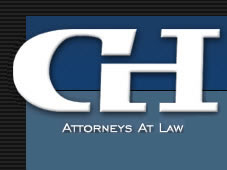Other than dealing with the Government, perhaps the most frustrating aspect of running a business is the collection of unpaid debts from your customers. Every business at one time or another will be faced with the situation where goods and/or services have been provided, no complaints have been received, yet your customer refuses to pay. This monograph will serve to answer a few questions you may have regarding collections as they arise in the commercial setting.1
Q: Can I file a lawsuit without an attorney?
A: Yes. California has a system of Small Claims Courts in which a creditor may sue without the need of an attorney where the amount in controversy is $7,500.00 or less; $5,000.00 if more than two claims over $5,000.00 are filed within a 12-month period.
Small Claims Courts have many benefits, but are often overlooked by companies. First, Small Claims Courts are informal, heard within a relatively short period of time after the filing of the claim. Where an action filed in Municipal Court or Superior Court may take anywhere from six months to three years to come to trial, Small Claims Court actions are often heard within 30 to 90 days from the filing of the claim.
Secondly, a defendant may not be represented by counsel in the Small Claims Court action. Of course, both the plaintiff and defendant in a Small Claims Court action may seek the advice of counsel as to how to proceed in court, but they may not be represented by an attorney.
Third, the filing fee for Small Claims Court is substantially less than for a Justice Court, Municipal Court or Superior Court action. Furthermore, if the amount in controversy is within the limits of Small Claims Court, and you proceed with a Justice or Municipal Court action, the court is not required to award the prevailing party its court costs. This is because the courts want as many claims as possible to be filed in Small Claims Court.
Small Claims is not, however, available on claims assigned to a collection agency. The creditor must prosecute the claim itself. Small Claims Court clerks are helpful in assisting creditors in preparing the claim form for filing.
Finally, many creditors have their credit manager file several claims to be heard on the same day, so as to avoid multiple appearances and allow as much work to be done in one day as possible. This is a recommended course of action, as it saves time and money for all parties concerned.
Q: Can I sue where I do not have a written contract with my customer?
A: Of course. California law recognizes that oral agreements are valid and that much of today's business is done by handshake or over the telephone.
It is important to remember that if you wish to sue on an oral agreement, you must do so within two years of the date of the breach of the oral agreement. If you fail to sue within such time, you will be prevented from suing.
Before suing on an oral agreement, you may wish to review your accounting records to determine whether a book account exists. A book account is defined by California Code of Civil Procedure section 337(a) as:
"[a] detailed statement which constitutes the principal record of one or more transactions between a debtor and a creditor arising out of a contract ..., and shows the debits and credits in connection therewith, and against whom and in favor of whom entries are made, is entered in the regular course of business as conducted by such creditor ..., and is kept in a reasonably permanent form and manner and is (1) in a bound book, or (2) on a sheet or sheets fastened in a book or to backing but detachable therefrom, or (3) on a card or cards of a permanent character, or is kept in any other reasonably permanent form and manner."
In many instances, when you first begin conducting business with your customer, you expect further transaction to be conducted. In so doing, you create a "book account". This is because for each sale or service provided to your customer, an entry was made. All payments are generally also recorded on your ledger. In addition, these ledgers are normally kept in a reasonably permanent form as described above.
Where a book account exists, a basis for suit exists other than breach of contract; namely, an action for money on "open book account". Rather than being required to bring such an action within two years of the date of the breach, as with an action for breach of an oral agreement, an action on an open book account may be brought within four years of the date of the breach.
As with all actions, we recommend that you seek the advice of counsel to determine whether your claim is timely before proceeding with suit.
Q: Can I sue if I only have an invoice or statement of account which I have sent to my customer?
A: Yes. California law permits one to sue on invoices. Such an action is known as a "common count" and suit may be brought to recover money for goods sold and delivered based on the invoices. You must, however, proceed with such an action within four years of the date of the breach. Where an invoice has been sent, this date would be four years from the date your customer failed to pay within the terms specified on the invoice. It is, of course, recommended that you check with your attorney to determine whether your claim is timely.
Similarly, where only a statement of account (summarizing all sales made to and payments received from your customer) has been sent to the debtor, the statement of account can serve as the basis for a suit. This is known as an "account stated". As with the suit brought on invoices, an action for failure to pay an account stated must be brought within four years of the date of the breach.
Q: Can I collect interest even when I do not have a specific agreement to do so?
A: Yes. The California Civil Code provides that where interest is not specifically provided for in a contract, interest will be assessed at the rate of ten (10) percent per annum. California Civil Code section 3287(a).
Q: Can I collect a finance charge when it is specified in my invoices and/or statement of account?
A: Yes. California law provides that where goods have been sold and the debtor has failed to pay within payment terms as specified on an invoice and/or statement of account, the collection of the finance charge is permitted. It is important to note that such a finance charge is generally exempt from the California Usury Law. Thus, interest at a rate greater than ten percent per annum may be charged as a finance charge.
It is important to remember that if you wish to assess a finance charge, clear and conspicuous language should be contained on all invoices. Suggested language is:
"Past due accounts will be charged a finance charge at the periodic rate of 1.5 percent per month, with a minimum charge of $2.00."
Although not required, it is recommended that all statements of account sent to your customers (e.g., a recapitulation of all invoices showing all debits and credits for the preceding month and the total balance due) should also contain similar language in order to reaffirm that a finance charge will be incurred if payment is not made within terms.
Q:Can I collect attorneys' fees?
A:In some instances, but not always. California law permits the collection of attorneys' fees either where they are provided by contract or provided by statute. In an action based on collection of a book account, California Civil section 1717.5 permits the imposition of attorneys' fees to the prevailing party. These attorneys' fees are, however, limited to the lesser of $660.00 or 25% of the principal obligation. These attorneys' fees are, of course, not available if you sue in Small Claims Court. In addition, the awarding of such attorneys' fees is within the discretion of the court and thus may not always be awarded.
Some statutes provide that attorneys' fees may be awarded to the prevailing party. These statutes include Business and Professions Code section 17200 et seq. (Unfair Trade Practices Act), the California Cartwright Act (which provides for an action for antitrust and price-fixing violations) and the Unruh Civil Rights Act, among others.
For every-day commercial transactions,most statutes providing for attorneys' fees do not apply, only possibly Civil Code section 1717.5. However, as referenced above, attorneys' fees may be awarded where they are provided for in a contract. Therefore, it is recommended that all of your agreements (i.e., invoices, credit applications, etc.) contain language providing for attorneys' fees. Suggested language is:
"If it becomes necessary to enforce the terms of this agreement, the prevailing party shall be entitled to reasonable attorneys' fees."
The inclusion of this simple language will assure that you have the right to collect attorneys' fees, should you need to sue. Without this language, attorneys' fees may not be available.
Q:One of my customers owes me a large sum of money. Although he has promised to pay on several occasions, I recently learned that he may be selling his company. Is there anything I can do to protect my rights?
A:Yes. If you have a security agreement securing the payment of your obligation, check to make sure that the security agreement has been signed and that you have perfected the security agreement by recording a UCC-1 financing statement with the Secretary of State. Where you have a perfected security interest, and you believe that the collateral will be sold and you will not be paid or the debtor is otherwise preventing you from repossessing the collateral, you have the right to sue for "claim and delivery". This is, in effect, a court order permitting repossession of the goods.
If you believe the collateral will be sold, otherwise hidden or made otherwise unavailable for repossession, a court order requiring the debtor to turn over the collateral may be obtained with little or no notice to the debtor. Similarly, if an emergency situation does not arise, yet the debtor will not pay or otherwise return the collateral, a court order may be obtained to require the debtor to turn over the collateral after appropriate notice is given.
Where the debt is unsecured, California law provides that where the debt is greater than $500.00, the amount in controversy is certain and is based on an agreement, either written or oral, a court order known as a "writ of attachment" may be obtained. A writ of attachment is an order permitting a marshal to levy on certain assets of the debtor.
In emergency situations such as where the debtor's business is being sold and a Notice of Bulk Sale Escrow has been published, the debtor is in the process of shutting down his business and moving from the area, etc., the court will permit a writ of attachment to be issued on an emergency basis. If the court does not believe that an emergency writ of attachment should be granted, the court may still award a restraining order, known as a "Temporary Protective Order", prohibiting the defendant from disposing of any of his assets, except in the ordinary course of his business, pending a hearing on the application for writ of attachment.
Where a writ of attachment is granted, and when the marshal levies pursuant to the writ of attachment, the assets are held by the marshal pending the outcome of the trial. When judgment is obtained in your favor, you merely request payment to you of the amounts held by the marshal, thereby simplifying satisfaction of the judgment.
In evaluating whether or not to proceed with suit, it is important to speak with counsel regarding the availability of writ of attachment or writ of possession/claim and delivery; these techniques are often successful at resolving cases without extensive litigation.
Arbitration - Arbitration is an informal proceeding in which the parties present evidence to a neutral third party known as the arbitrator. The arbitrator, after listening to the dispute, arrives at a decision which may or may not be binding, depending on whether the parties have agreed to the arbitration or not.
Arbitration can be binding between the parties where the parties agree to such. Both parties must, however, voluntarily agree to binding arbitration, and in so doing, may be waiving certain substantive rights. These rights include the right to a trial by jury, the right to have an experienced judge hear the case (although arbitrations can now be heard in front of retired judges), the right to full discovery (which is the process by which facts concerning the other side's case can be revealed by use of depositions, written questions, etc.), due to the fact that unless the parties agree to provide for full discovery, discovery is limited in arbitration to the mutual exchange of documents.
The benefit of arbitration is that the matter is handled quickly and inexpensively. In many commercial disputes, discovery is a costly and time-consuming process. Many times, litigants do not voluntarily turn over documents and a court order is required. Obtaining court orders requires a motion, for which the client is charged. Arbitrations are normally held at the minimum of discovery, thereby lessening trial costs.
Most Municipal Court actions (those under $25,000.00) and Superior Court actions (those over$25,000.00) are often timeconsuming, taking up to six months to three years to obtain a trial date. Arbitrations can usually be held within three to six months of the date an arbitration demand is filed. The time savings is, therefore, a great advantage when considering an arbitration over court.
In addition to cost and time, often the parties are free to select an arbitrator who is experienced in the particular field of law in dispute. For example, where a construction dispute exists, you may be able to select an arbitrator with experience in construction law. Similarly, in commercial disputes, you may be able to select an arbitrator experienced in commercial matters.
As discussed above, a writ of attachment or writ of possession may be available to you in addition to the filing of a suit. Should you wish to proceed by way of arbitration, your right to obtain a writ of attachment or writ of possession is not diminished. Such writs may be issued by the court and such will not constitute a waiver of your arbitration rights.
What is important to remember with regard to arbitration is that it is consensual in nature. If you wish to require your customers to submit to an arbitration as opposed to resolving disputes by court action, it must be agreed to in advance. This may be accomplished by including language in all of your agreements, including credit applications, invoices, statements of account, purchase orders, etc. When specifying that disputes will be resolved by way of arbitration, it is important to consider which tribunal you wish to have your arbitrations conducted before. Several tribunals currently exist and some are even becoming specialized, accepting only cases in certain areas, such as real estate. Consult with your counsel to determine whether or not to include language mandating arbitration in your agreements. This is a personal choice that should be seriously considered.
Mediation - One of the oldest methods of resolving disputes is by way of mediation, in which a neutral third party is brought in, listens to both sides and attempts to work with both sides to settle their dispute. Though mediations are non-binding, they are often helpful in resolving disputes without the need of costly and time-consuming litigation.
Rent-a-Judges - California law permits the parties to proceed with a trial with private judges. The private judge industry is one of the true growth industries in the legal profession. It should be seriously considered as a cost-effective and timesaving method of resolving disputes.
In using a rent-a-judge, the parties agree to hiring a retired judge to listen to some or all facets of the case. A rent-a-judge may be used for trial only or his duties may be expanded to include all aspects of the court proceeding, including motions, pre-trial hearings, etc.
The parties may also agree to select a particular rent-a-judge, who may have experience in this particular area of dispute. This experience may be helpful in resolving the dispute prior to trial.
Rent-a-judges are particularly effective in cases involving large dollar figures. Rent-a-judges are often costly, as they charge approximately $250.00 per hour. In larger cases, however, these costs are offset by the ability to have a quick resolution.
Mini-Trials - Either using the court system or the private court system (i.e., rent-a-judge or arbitration), parties can often save time and money by the use of a mini-trial. A mini-trial is a trial on certain issues which are in dispute between the parties.
Rather than litigating the entire dispute, the issues which can be resolved by way of agreement are agreed to, leaving only truly unresolved issues for determination by the court. For example, in certain commercial disputes, the amount owed is not in dispute, but the amount of an offset is. By agreeing to as many issues as possible and limiting the issues to a handful, a rent-a-judge or arbitrator can be effectively used. This, of course, saves time and money for all involved.
The above are only some of the ways an attorney can help you lessen your litigation costs, yet allow you to effectively enforce your agreements.
It is important that no matter how you wish to proceed with your collections, you consult with an attorney to find the best remedies available to you. The above discussion is limited to general areas. At Coleman & Horowitt, we have extensive experience in dealing with the collection of commercial obligations and the enforcement of creditors' rights. We would be pleased to discuss any problems you may have in these areas.
______________________
1 This memorandum does not deal with consumer
transactions, which are transactions for the purchase and
sale of personal, household or family items such as
furniture, cars, boats, medical services, etc.
DO NOT REPRODUCE WITHOUT WRITTEN PERMISSION BY AUTHOR.











